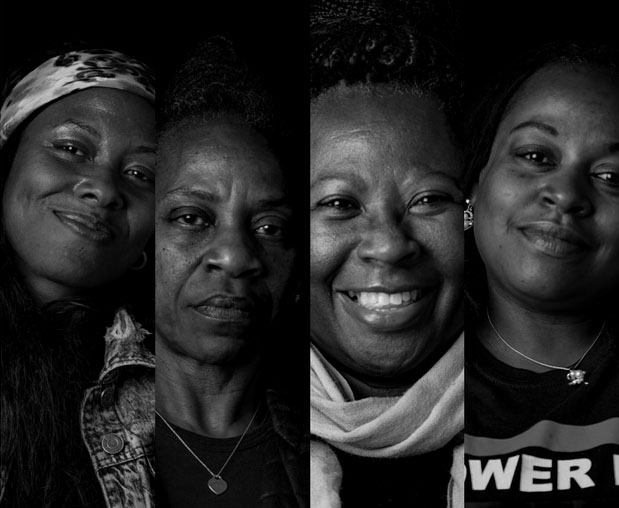The nonprofit advocacy group Empower DC has partnered with playwright Caleen Jennings, a two-time Helen Hayes Award nominee, to produce “On My Mind/In My Heart: Voices of Women in Public Housing.” The program’s six actresses each told their stories of living in the D.C. public housing system to Jennings, who crafted the script from their experiences. The play premiered last year with two performances, but Empower DC saw an opportunity to bring the show to a wider audience. The play touches on the women’s interactions not only with the housing system but also with their neighbors, their families and new residents.
As the program begins, music plays and the six women walk out in single file, dancing. “We’re not going anywhere!” the women say in unison.
Some of them grew up in D.C. public housing, including India Fuller, who watched crack and violence take over the city. When her mother died of cancer, the housing complex put a summons on her door, claiming her mother owed them money.
Others are mothers themselves. Linda Brown is the mother of a 23-year-old daughter who has multiple disabilities. She describes carrying her daughter in a wheelchair up the stairs when the elevator in her building is broken or stained with urine. The neighborhood kids stare at her daughter’s chair.
“We are here to bear witness,” the women say in unison.
Mold aggravates children’s lungs. Gunshots ring out in the night. One woman waits on the public-housing waiting list for 16 years.
Neighbors and community are discussed frequently. Paulette Mathews started an unofficial children’s program at Barry Farm, but she describes how a few neighbors would yell humiliating things at her and pull up flowers the children had planted.
Another woman returns to a neighborhood she had left that has now been gentrified, full of white residents and dogs. Her neighbors regard her with suspicion. “They assume,” she says.
Empower DC director Parisa Norouzi encourages the audience to listen and learn from the stories presented. “Public housing is our housing, and it’s a precious resource that we must cherish,” she said.
By the end of the show, the women appear drained but resilient, looking for a better life. They discuss what they love about their lives and what has challenged them. “I’m tired of poverty,” one says at the end of the performance. “It’s ugly, and it hurts.”
Showtimes and event information are available at facebook.com/EmpowerDC








